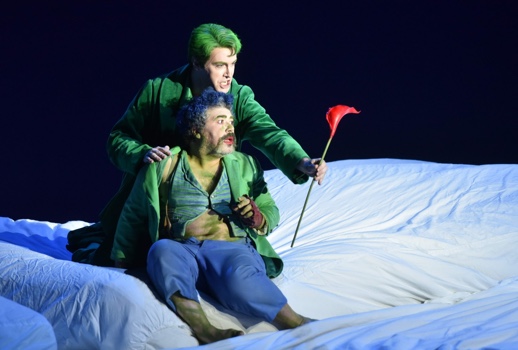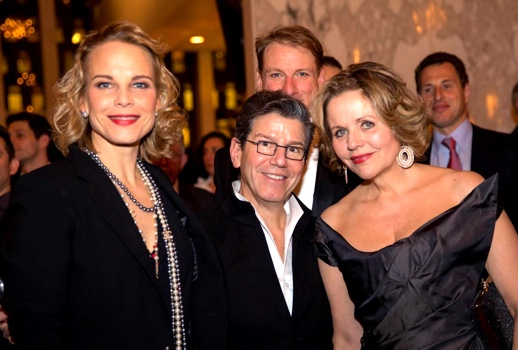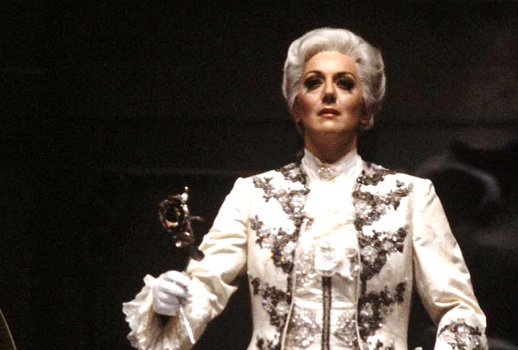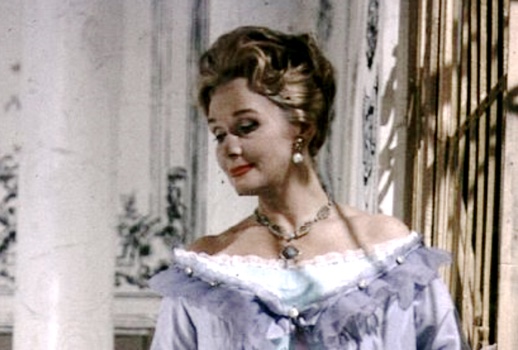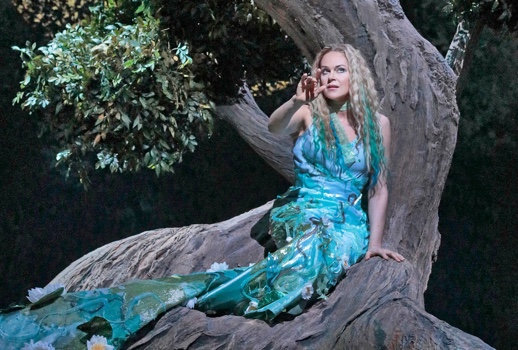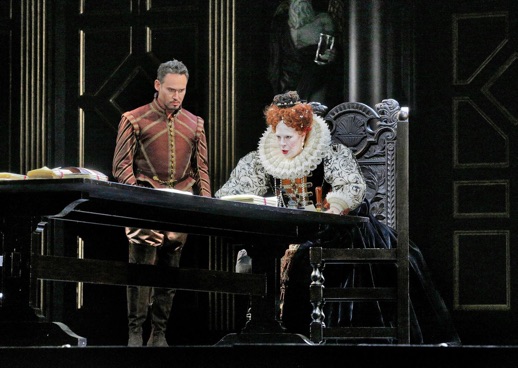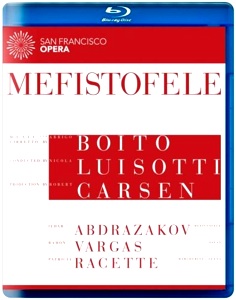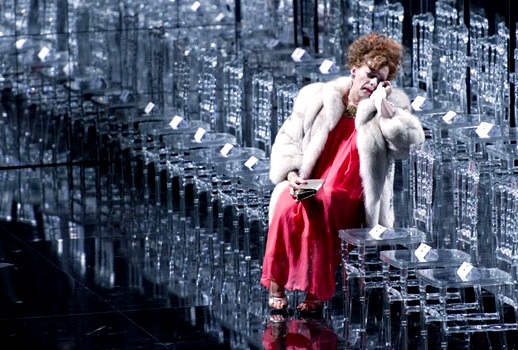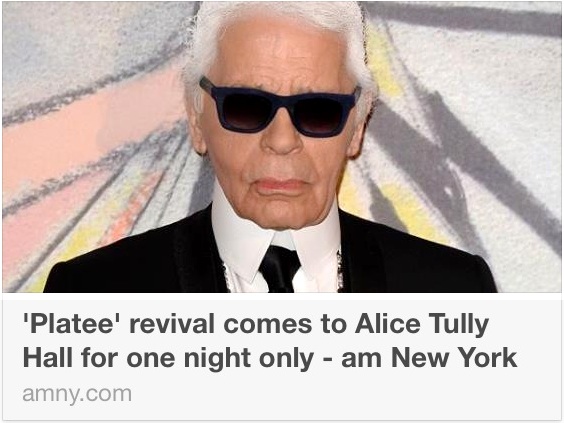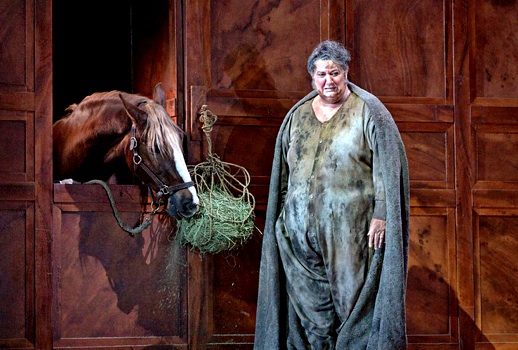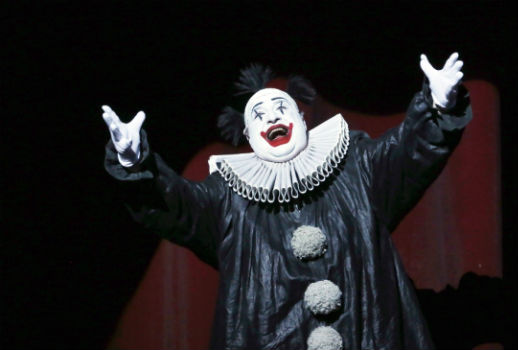
Verdi’s Falstaff is a brilliantly written opera: funny, with a complex ability to operate across minutely shifting registers of farce and lyricism. It needs, ideally, a production and cast capable of executing both comedy and drama, irony and sincerity—often concurrently. In its current Met revival, happily, Falstaff has everything it needs.
Robert Carsen‘s legendary production of Eugene Onegin finally arrives in San Francisco.
With the phenomenal cast that stacked Paris Opera’s production of I Capuleti e i Montecchi , it was easy to overlook the quirks of Bellini’s opera and get lost in the pleasures of glorious bel canto singing.
My impression was of a very fine singer performing a role that was slightly too large for him.
On the first viewing of this Idomeneo, with a cast clad mostly in military khaki green set against a green sky, the eye starts to tire from the dullness of the surroundings.
It may have taken 28 years to see Robert Carsen’s production of Britten’s A Midsummer Night’s Dream in the U. S., but it was worth waiting for.
At last the future plans of America’s Most Beloved Semi-Retired People’s Diva have been revealed!










